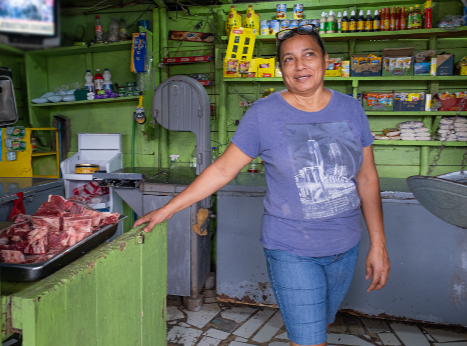The Value of Education in Honduras
Even though I got sick halfway through it, my field visit to Intibucá was a pleasant one. The cold weather was a refreshing change from the heat in La Ceiba, and I couldn’t get over the beauty or how unbelievably welcoming clients were. While there were many lovely aspects of my visit, I did notice a sad similarity among the stories of the different women I met with- a lack of educational opportunity available to them.
Every client that I questioned in Intibucá about her level of education told me that she didn’t complete her studies, with many having finished before middle school. When I probed further on the topic, each woman explained it was because her parents didn’t have the financial resources to keep her in school. In Honduras, parents are faced with a huge financial burden at the start of each school year, which often keeps their children from continuing. With Honduras’ poverty rate around 69%, this leads to a significant number of individuals not receiving a formal education.
Honduras has a dropout problem. Only 39% of Honduran youth continue their educations after primary school and attendance levels continue to drop off during middle school and high school. Many of our clients know the struggles of finding employment or making ends meet because of their lack of formal education. For this reason, they want their own children to finish their schooling and go on to become professionals. There’s a high demand for the Education Loan because clients want their children to get the education they weren’t able to receive.
During my visit, it was clear that many of the women would have continued their education if money wasn’t an issue. One of our clients, Crestel, decided last year to return to school and is currently in her second year of middle school while managing her business selling Avon products. Now that she has the financial means and her husband’s moral support, she hopes to get a high school degree in electrical studies and aspires to go on to work for the national electrical power company.
Maria makes and sells food such as tortillas and tamales for her business. Ever since her husband injured himself at work three years ago, he has been unemployed, which makes her the sole breadwinner for her family. Even with family and work responsibilities, Maria plans on starting the first grade in the near future. She wants to eventually go on and receive a high school degree.
I was astonished to see just how much the women I met with value education. Going back to school after such a long time while managing other responsibilities can’t be easy. The determination that women of all ages show reflects their commitment to creating a better life for themselves and their families. Crestel and Maria help remind us all of the sacrifices that women make each day to better their families.


